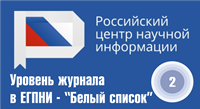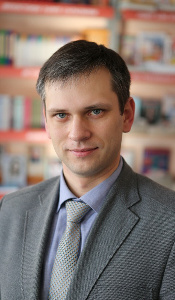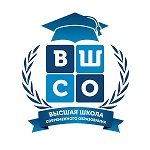ФОРМИРОВАНИЕ КОММУНИКАТИВНОЙ ТОЛЕРАНТНОСТИ В ВУЗЕ: ПЕДАГОГИЧЕСКИЙ И ПСИХОЛОГИЧЕСКИЙ АСПЕКТЫ
Аннотация
В статье подробно исследуется процесс формирования коммуникативной толерантности (КТ) у будущих специалистов в рамках педагогической и психологической подготовки. Авторы статьи провели анализ как отечественных, так и зарубежных исследований, чтобы выявить основные аспекты формирования коммуникативной толерантности. Их исследование фокусировалось на студентах вуза и формировании КМ в образовательном процессе.
Цель исследования заключалась в изучении концепции коммуникативной толерантности и разработке педагогической технологии для ее формирования у будущих психологов на занятиях по иностранному языку в вузе.
Материалы и методы. В ходе исследования было проведено детальное изучение основного понятия «коммуникативная толерантность» и выявление ее структурных элементов авторами, с последующим созданием способа формирования КТ. Экспериментальная работа выявила три ключевых уровня КТ на различных этапах исследования. Для достижения поставленных целей были использованы различные методы, включая теоретические (анализ, систематизация, обобщение), эмпирические (наблюдение, тестирование), социологические (опросы, анкетирование) и математико-статистические (обработка данных). Основой методики стали анкета «Общая коммуникативная толерантность» В.В. Бойко и ряд психологических диагностических тестов, использованных в процессе исследования.
Результаты исследования. В Севастопольском государственном университете было проведено исследование, в рамках которого 35 студентов четвертого курса приняли участие. Результаты эксперимента показали, что внедрение педагогических технологий привело к увеличению уровня компетенции участвовавших студентов в области культурного менеджмента на 14%. Это исследование подчеркнуло важность систематического развития компетенций учащихся в условиях высшего учебного заведения.
Область применения результатов. Полученные результаты исследования могут быть применены в различных областях, таких как система дополнительного профессионального образования, программы трудоустройства и профессиональной подготовки, с целью улучшения общепрофессиональной компетентности педагогических кадров.
Скачивания
Литература
References
Aleksandrova O., Kolinko M. Understanding Intercultural Communication as a Condition for Sustainable Development. European Journal of Sustainable Development, 2024, vol. 13(2), pp. 261-277. https://doi.org/10.14207/ejsd.2024.v13n2p261
Baldanova E.A. Model of the process of development of communicative tolerance of students by means of a foreign language. Izvestiya Voronezh State University of Engineering Technologies, 2018, vol. 80, no. 1, pp. 110-116. https://doi.org/10.20914/2310-1202-2018-1-110-116
Baldanova E.A., Dondokova N.B. Language education: communicative tolerance as a component of communicative competence. Litera, 2021, no. 6, pp. 1-8. https://doi.org/10.25136/2409-8698.2021.6.35672
Beatriz C. Accentuate the Positive: Reflections on Empathic Interpersonal Interactions. The American Journal of Occupational Therapy, 2011, vol. 65(6), pp. 623-634. https://doi.org/10.5014/ajot.2011.656002
Beketova A.P., Kuprina T.V., Petrikova A. Development of intercultural communicative tolerance of students in university polylingual educational environment. Education and Science, 2018, vol. 20, no. 2, pp. 108-124. https://doi.org/10.17853/1994-5639-2018-2-108-124
Boyko V.V. Communicative tolerance in interpersonal relations. Review of Psychiatry and Medical Psychology, 1994, no. 1, pp. 13-21.
Boyko V.V. Energy of emotions in communication: a look at yourself and others. M.: Filin, 2006, 472 p.
Boyko V.V. Methodology of diagnostics of communicative attitude. Tolerant consciousness and formation of tolerant relations (theory and practice): Collection of scientific method. article. Moscow Psychological and Social Institute. 2003, pp. 328-342.
Chaplak Y., Chuyko H., Proskurniak O. Communicative Tolerance as a psychological problem. Psychological journal, 2020, vol. 6(3), pp. 33-44. https://doi.org/10.31108/1.2020.6.3.3
Coronado-Mondonado I., Benitez-Marquez M. Emotional intelligence, leadership, and work teams: A hybrid literature review. Heliyon, 2023, vol. 9(10), pp. 203-214. https://doi.org/10.1016/j.heliyon.2023.e20356
Dolgova V., Bogachev A., Gotselyuk M., Nurtdinova A. Professional Motivation Development In Students Of Educational Psychology: Current State, Model, Programme / In O. D. Shipunova, & D. S. Bylieva (Eds.), Professional Culture of the Specialist of the Future & Communicative Strategies of Information Society, vol. 98. European Proceedings of Social and Behavioural Sciences, 2020, pp. 1-15. https://doi.org/10.15405/epsbs.2020.12.03.1
Drozhzhina N.B. Psychological study of communicative tolerance of modern adolescents. Interactive Science, 2016, pp. 91-93. https://doi.org/10.21661/r-115562
Farafontova E., Shcheblyakov E., Safronov V., Babaeva A. Gender Equality In Labor Relations In The Context Of Sustainable Development Goals / In I. V. Kovalev, A. A. Voroshilova, G. Herwig, U. Umbetov, A. S. Budagov, & Y. Y. Bocharova (Eds.), Economic and Social Trends for Sustainability of Modern Society (ICEST 2020), vol. 90. European Proceedings of Social and Behavioural Sciences. 2020, pp. 128-136. https://doi.org/10.15405/epsbs.2020.10.03.16
Fritz D. Fostering students’social tolerance in sociology; learning in high school Harapan Mandari. Interdiciplinary Journal and Hummanity (INJURITY), 2023, vol. 2(11), pp. 957-966. https://doi.org/10.58631/injurity.v2i11.145
Jennings P., Greenberg M. The Prosocial Classroom: Teacher Social and Emotional Competence in Relation to Student and Classroom Outcomes. Review of Educational Research, 2009, vol. 79, pp. 491-525. http://dx.doi.org/10.3102/0034654308325693
Karuppan C., Barrari M. Perceived discrimination and international students' learning: An empirical investigation. Journal of Higher Education Policy and Management, 2011, vol. 33(1), pp. 67-83. https://doi.org/10.1080/1360080X.2011.537013
Logvina S., Sakhno Y., Sivtseva A., Trunchenkova N. Forming Foreign Language Communicative Competence At Medical Universities: Theory And Methodology / In O. D. Shipunova, & D. S. Bylieva (Eds.), Professional Culture of the Specialist of the Future & Communicative Strategies of Information Society, vol. 98. European Proceedings of Social and Behavioural Sciences, 2020, pp. 553-561. https://doi.org/10.15405/epsbs.2020.12.03.55
Luchins A. S. Mechanization in problem solving: The effect of Einstellung. Psychological Monographs, 1945, vol. 54 (6), 95 p. https://doi.org/10.1037/h0093502
Makarenko Y.V., Sivtseva A.S., Braslavskaya E.A. Features of communicative competence of future specialists of socionomic profile. Russian Journal of Education and Psychology, 2024, vol. 15, no. 2, pp. 42-61. https://doi.org/10.12731/2658-4034-2024-15-2-495
O'Connor P., Hill A., Kaya M., Martin B. The Measurement of Emotional Intelligence: A Critical Review of the Literature and Recommendations for Researchers and Practitioners, Front. Psychol., 2019, vol. 10, pp. 1111-1116. https://doi.org/10.3389/fpsyg.2019.01116
Opincar J.T. Exploring ethical intelligence through ancient wisdom and the lived experiences of senior business leaders. A Dissertation for the Degree Doctor of Management in Organizational Leadership. University of Phoenix, 2012, 931p.
Padmaja N., Rani L.D., Bharathi M. Innovative Methods of Effective Teaching and Learning. Innovative teaching practices for 4G students, 2019, pp. 17-20. https://doi.org/10.34256/iorip1914
Petrikova A., Kuprina V., Beketova A., Mishenkova M. Intercultural aspects of concept "TOLERANCE" and facilities of creating tolerant academic environment. XLinguae, 2017, vol. 10(4), pp. 287-303. https://doi.org/10.18355/XL.2017.10.04.24
Plessen K.J. The role of self-regulatory control processes in understanding aggressive ideations and behaviors: An experience sampling method study. Front Psychiatry, 2023, vol. 13, pp. 1-10. https://doi.org/10.3389/fpsyt.2022.1058814
Ryan R.M., Deci E.L. Self-determination theory and the facilitation of intrinsic motivation, social development, and well-being. American Psychologist, 2002, vol. 55(1), pp. 68-78. https://doi.org/10.1037/0003-066X.55.1.68
Sivtseva A.S., Braslavskaya E.A., Ilyasova A.N. Socio-psychological factors of formation of communicative tolerance of teachers in the educational environment of the university. Russian Journal of Education and Psychology, 2024, vol. 15, no. 2, pp. 22-41. https://doi.org/10.12731/2658-4034-2024-15-2-448
Sokol M., Rozlutska G., Shaparenko K., Hvozdyak O., Gorodyska V. Tolerance in the Communicative Culture of Modern Educational Manager. Propósitos y Representaciones, 2021, vol. 9, pp. 1-7. https://doi.org/10.20511/pyr2021.v9nSPE3.1170
Shvedova N.A. Gender equality and sustainable development: new trends. Woman in Russian society, 2006, no. 4, pp. 3-21.
Yavon S.V., Ivanova T.N. Communicative Tolerance of Students of Higher Educational Establishments in the Context of Social and Economic Dimension of the Region / In: Popkova, E. (eds) The Future of the Global Financial System: Downfall or Harmony. ISC 2018. Lecture Notes in Networks and Systems, vol. 57. Springer, Cham. 2019. https://doi.org/10.1007/978-3-030-00102-5_7
Список литературы
Aleksandrova O., Kolinko M. Understanding Intercultural Communication as a Condition for Sustainable Development // European Journal of Sustainable Development. 2024. Vol. 13(2). P. 261-277. https://doi.org/10.14207/ejsd.2024.v13n2p261
Балданова Е.A. Модель процесса развития коммуникативной толерантности студентов средствами иностранного языка // Известия Воронежского государственного университета инженерных технологий. 2018. Т. 80, №1. С. 110-116. https://doi.org/10.20914/2310-1202-2018-1-110-116
Baldanova E.A., Dondokova N.B. Language education: communicative tolerance as a component of communicative competence // Litera. 2021. № 6. С. 1-8. https://doi.org/10.25136/2409-8698.2021.6.35672
Beatriz C. Accentuate the Positive: Reflections on Empathic Interpersonal Interactions // The American Journal of Occupational Therapy. 2011. Vol. 65(6). P. 623-634. https://doi.org/10.5014/ajot.2011.656002
Бекетова А.П., Куприна Т.В., Петрикова А. Развитие межкультурной коммуникативной толерантности студентов в вузовской полиязычной образовательной среде // Образование и наука. 2018. Т. 20, № 2. С. 108-124. https://doi.org/10.17853/1994-5639-2018-2-108-124
Бойко В.В. Коммуникативная толерантность в межличностных отношениях // Обозрение психиатрии и медицинской психологии. 1994. № 1. С. 13-21.
Бойко В.В. Энергия эмоций в общении: взгляд на себя и других. М.: Филин, 2006. 472 с.
Бойко В.В. Методика диагностики коммуникативной установки // Толерантное сознание и формирование толерантных отношений (теория и практика): Сб. научный метод. статьи. Московский психолого-социальный институт. 2003. С. 328-342.
Chaplak Y., Chuyko H., Proskurniak O. Communicative Tolerance as a psychological problem // Psychological journal. 2020. Vol. 6(3). P. 33-44. https://doi.org/10.31108/1.2020.6.3.3
Coronado-Mondonado I., Benitez-Marquez M. Emotional intelligence, leadership, and work teams: A hybrid literature review // Heliyon. 2023. Vol. 9(10). P. 203-214. https://doi.org/10.1016/j.heliyon.2023.e20356
Dolgova V., Bogachev A., Gotselyuk M., Nurtdinova A. Professional Motivation Development In Students Of Educational Psychology: Current State, Model, Programme // In O. D. Shipunova, & D. S. Bylieva (Eds.), Professional Culture of the Specialist of the Future & Communicative Strategies of Information Society, vol. 98. European Proceedings of Social and Behavioural Sciences, 2020. P. 1-15. https://doi.org/10.15405/epsbs.2020.12.03.1
Дрожжина Н.Б. Психологическое исследование коммуникативной толерантности современных подростков // Интерактивная наука. 2016. С. 91-93. https://doi.org/10.21661/r-115562
Farafontova E., Shcheblyakov E., Safronov V., Babaeva A. Gender Equality In Labor Relations In The Context Of Sustainable Development Goals // In I. V. Kovalev, A. A. Voroshilova, G. Herwig, U. Umbetov, A. S. Budagov, & Y. Y. Bocharova (Eds.), Economic and Social Trends for Sustainability of Modern Society (ICEST 2020), vol. 90. European Proceedings of Social and Behavioural Sciences. 2020. P. 128-136. https://doi.org/10.15405/epsbs.2020.10.03.16
Fritz D. Fostering students’social tolerance in sociology; learning in high school Harapan Mandari // Interdiciplinary Journal and Hummanity (INJURITY). 2023. Vol. 2(11). P. 957-966. https://doi.org/10.58631/injurity.v2i11.145
Jennings P., Greenberg M. The Prosocial Classroom: Teacher Social and Emotional Competence in Relation to Student and Classroom Outcomes // Review of Educational Research. 2009. Vol. 79. P. 491-525. http://dx.doi.org/10.3102/0034654308325693
Karuppan C., Barrari M. Perceived discrimination and international students' learning: An empirical investigation // Journal of Higher Education Policy and Management. 2011. Vol. 33(1). P. 67-83. https://doi.org/10.1080/1360080X.2011.537013
Logvina S., Sakhno Y., Sivtseva A., Trunchenkova N. Forming Foreign Language Communicative Competence At Medical Universities: Theory And Methodology // In O. D. Shipunova, & D. S. Bylieva (Eds.), Professional Culture of the Specialist of the Future & Communicative Strategies of Information Society, vol. 98. European Proceedings of Social and Behavioural Sciences. 2020. P. 553-561. https://doi.org/10.15405/epsbs.2020.12.03.55
Luchins A.S. Mechanization in problem solving: The effect of Einstellung // Psychological Monographs. 1945. Vol. 54 (6). 95 p. https://doi.org/10.1037/h0093502
Макаренко Ю.В., Сивцева А.С., Браславская Е.А. Особенности коммуникативной компетентности будущих специалистов социономического профиля // Russian Journal of Education and Psychology. 2024. Т. 15, № 2. С. 42-61. https://doi.org/10.12731/2658-4034-2024-15-2-495
O'Connor P., Hill A., Kaya M., Martin B. The Measurement of Emotional Intelligence: A Critical Review of the Literature and Recommendations for Researchers and Practitioners // Front. Psychol. 2019. Vol. 10. P. 1111-1116. https://doi.org/10.3389/fpsyg.2019.01116
Opincar J.T. Exploring ethical intelligence through ancient wisdom and the lived experiences of senior business leaders. A Dissertation for the Degree Doctor of Management in Organizational Leadership. University of Phoenix, 2012, 931p.
Padmaja N., Rani L.D., Bharathi M. Innovative Methods of Effective Teaching and Learning // Innovative teaching practices for 4G students. 2019. P. 17-20. https://doi.org/10.34256/iorip1914
Petrikova A., Kuprina V., Beketova A., Mishenkova M. Intercultural aspects of concept "TOLERANCE" and facilities of creating tolerant academic environment // XLinguae. 2017. Vol. 10(4). P. 287-303. https://doi.org/10.18355/XL.2017.10.04.24
Plessen K.J. The role of self-regulatory control processes in understanding aggressive ideations and behaviors: An experience sampling method study // Front Psychiatry. 2023. Vol.13. P. 1-10. https://doi.org/10.3389/fpsyt.2022.1058814
Ryan R.M., Deci E.L. Self-determination theory and the facilitation of intrinsic motivation, social development, and well-being // American Psychologist. 2002. Vol. 55(1). P. 68-78. https://doi.org/10.1037/0003-066X.55.1.68
Сивцева А.С., Браславская Е.А., Ильясова А.Н. Социально-психологические факторы формирования коммуникативной толерантности преподавателей в образовательной среде вуза // Russian Journal of Education and Psychology. 2024. Т. 15, № 2. С. 22-41. https://doi.org/10.12731/2658-4034-2024-15-2-448
Sokol M., Rozlutska G., Shaparenko K., Hvozdyak O., Gorodyska V. Tolerance in the Communicative Culture of Modern Educational Manager // Propósitos y Representaciones. 2021. Vol. 9. P. 1-7. https://doi.org/10.20511/pyr2021.v9nSPE3.1170
Шведова Н.А. Гендерное равенство и устойчивое развитие: новые тенденции // Женщина в российском обществе. 2006. Вып. 4. С. 3-21.
Yavon S.V., Ivanova T.N. Communicative Tolerance of Students of Higher Educational Establishments in the Context of Social and Economic Dimension of the Region // In: Popkova, E. (eds) The Future of the Global Financial System: Downfall or Harmony. ISC 2018. Lecture Notes in Networks and Systems, vol 57. Springer, Cham. 2019. https://doi.org/10.1007/978-3-030-00102-5_7
Просмотров аннотации: 408
Copyright (c) 2024 Aleksandra S. Sivtseva, Svetlana S. Mirontseva, Alexandra V. Bugoslavskaya

Это произведение доступно по лицензии Creative Commons «Attribution-NonCommercial-NoDerivatives» («Атрибуция — Некоммерческое использование — Без производных произведений») 4.0 Всемирная.





































